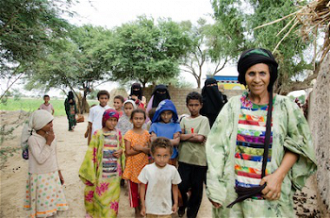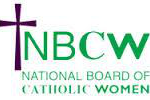Progressio to close after 75 years

Progressio project in Yemen 2015
The charity Progressio has announced today that it is to close next year. Following the loss of a two million pound grant from the Department for International Development, the charity has been unable to raise enough funds to continue. In a letter, the Chair of Trustees, Martin McEnery writes:
'At a meeting on 14 September 2016 to discuss the conclusions of the recent consultation on Progressio's future, the charity's trustees and myself as chair took the decision to begin proceedings to close Progressio.
This decision has been taken with deep regret, on the basis that we have not been able to secure sufficient levels of income to ensure a viable future post March 2017. It is our intention to as far as possible complete all project and partner commitments through to the end of March 2017 alongside our Global South partners.
For the International Citizen Service (ICS) programme our sub-contract will pass back to the ICS contract holder Voluntary Service Overseas. With regards to the other three projects where funding continues beyond the end of March 2017, we are currently working with a few organisations to ensure our current work and existing commitments can be fulfilled after March 2017.
The decision to close comes despite intensive fundraising efforts and many years of investing to diversify income. Unfortunately, the funding landscape has become increasingly competitive and we have been unable to replace the £2 million unrestricted grant per annum from the Department for International Development which comes to an end in December 2016.
We, the trustees and myself as Chair, have reached this decision with great sadness. The decision was agreed and supported by all the trustees. We are hugely proud of all that has been achieved since the charity was formed in 1940.
In particular we appreciate and thank all of our staff, Development Workers and volunteers both in the UK and overseas, as well as all of our supporters like you. Together, your support and dedication have helped our partners and some of the world's most marginalised communities achieve incredible things, empower themselves and challenge multiple unfair power structures.
Our thoughts now are with the people we work alongside, such as the Yemeni, Somali and Southern African women struggling to have a voice and working to counter deeply entrenched abuses of their rights and violence targeted against them. They are also with the subsistence farmers across all our country programmes in Central America, Africa and Yemen who are striving for sustainable livelihoods and to have a voice in decisions that affect their lives. We will do our utmost to ensure their voices continue to be heard and their struggles supported.'
Fiona Mwashita, Progressio's Sub Regional Manager of Southern Africa said: "I would like to thank all the supporters of Progressio who have helped us carry out significant development work through our international programmes."
The letter concludes: "We would like to thank you all for your support, donations and time. Moving forwards, we are no longer actively fundraising. However, any donations that we receive will go towards our core funding to help us keep providing support to the people and partners we work with in fragile states until March 2017.
We leave a proud legacy and the foundation of a huge amount of good work that will now be continued by others across many countries in Latin America, the Caribbean, the Middle East, Asia and Africa. We will seek to ensure that as much of our legacy as possible is captured and that some of our history, achievements and learning are made available to others."
History - (text taken from the Progressio website)
The organisation was founded, with the support of Cardinal Hinsley, on 1 August 1940 and originally named: 'The Sword of the Spirit' - as a reaction to war and to Hitler's rejection of 'kinship and love'. The lay Catholic group was a "campaign of prayer, study and action to unite the citizens of this country in support of future peace," Cardinal Hinsley said.
In its early years The Sword of the Spirit worked to build peace in Europe. It published pamphlets on Nazism, and spoke out about the threat of totalitarianism to the Christian conception of life and to international order. Although The Sword initially focused on oppression in eastern Europe, it began to widen its attention to the international stage and to address issues such as food aid and human rights.
This growing internationalism led The Sword to begin to recruit volunteers to work overseas in 1963, working in conjunction with the British Volunteer Programme. The Sword believed it was important to invest in people, and its volunteers set out to enable people in the developing world to find solutions to their own problems. This idea would later become central to the success of the organisation.
In 1965, The Sword of the Spirit was renamed the Catholic Institute for International Relations (CIIR). While establishing a reputation as a leading international development agency, CIIR continued its policy work, seeking to provide a moral voice against human rights abuses and to influence both the Church and state.
By this time, CIIR was well respected for its analysis and commentary on international issues. It had developed good relationships with the global South and worked closely with grassroots initiatives in the developing world, giving a voice to the voiceless and projecting them onto an international stage.
In the 1970s, following the Second Vatican Council and its statement of commitment to 'the option for the poor', progressive elements in the Catholic Church increasingly supported grassroots liberation movements. CIIR supported progressive elements of the Church in various liberation and human rights struggles in Central America, Southern Africa and Asia. It published booklets on liberation theology and promoted progressive Church speakers.
This, however, was only part of its work, as detailed policy analysis and innovative work on issues such as drugs, debt and trade were not expressly Church linked. CIIR worked in collaboration with others and published high quality analysis.
When the volunteer placements first began they were linked to the Church, but the overseas programme soon adopted a wider developmental perspective, working with people of all faiths and none. Although best known overseas, the programme worked closely with other British agencies and secured a reputation for professionalism and integrity. It began to recruit skilled professionals alongside volunteers to do specific jobs in response to specific needs identified by our partners in the South.
CIIR recruited its first such 'development worker' to work in Nicaragua in 1974. It was also the first international development agency to begin recruiting local staff - rather than expatriates - to run its offices in the countries where it worked. It was a true partnership with the South, based on people sharing skills with local communities through grassroots initiatives, in order to help poor and marginalised people bring change to their own lives.
As time went on, CIIR's advocacy and development work became increasingly intertwined. Meanwhile, this development work was based on the awareness that practical solutions to the problems of poverty must be backed up by changes in the structures and policies that keep people poor. Our development programme therefore explicitly sought to build the capacity of partners to undertake advocacy themselves.
As CIIR's distinctive approach to international development took hold, it was becoming increasingly clear that the name, the Catholic Institute for International Relations, no longer represented the breadth and depth of the organisation's work.
In 2006, CIIR changed its name to Progressio - a reference to Populorum Progressio, one of the central documents in Catholic social teaching that emerged from the Second Vatican Council. Populorum Progressio speaks about the challenges of development and the importance of justice in relations between rich and poor nations.
Visit Progressio's website here: www.progressio.org.uk/



















